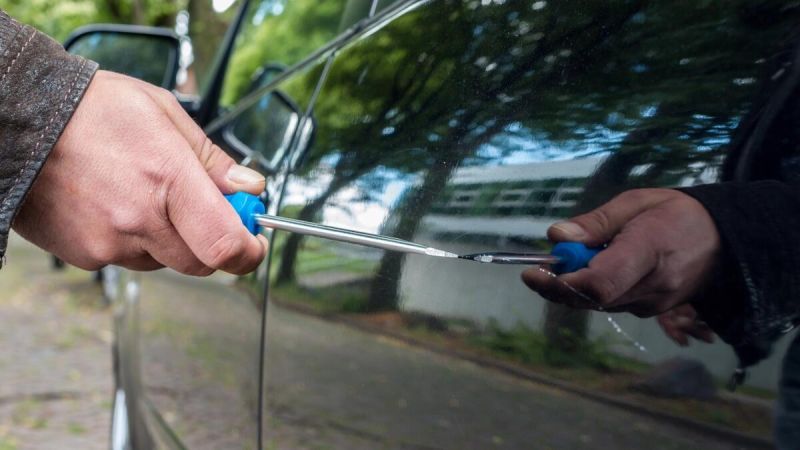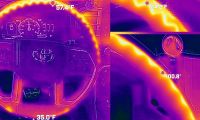According to a recent Fox 9 Minneapolis-St. Paul news report, Dylan Adams, the accused, was arrested, but the Hennepin County Attorney's Office tells us it is unlikely he will face criminal charges.
County Attorney's Office led by Mary Morardi has decided not to seek criminal charges against this man. Instead, what they're going to do is more of a diversion program rather than the criminal consequences―basically, if you stay out of trouble and don't do this again, then you'll go into this track instead of being criminally charged ― Fox 9 Minneapolis-St. Paul News
This is a turnabout with respect to earlier news stories where Tesla vandals were labeled as domestic terrorists, which is an unusual labeling as people who vandalize private property are typically charged with crimes like vandalism or property destruction―but not terrorism.
What Qualifies as Domestic Terrorism?
The term "domestic terrorist" may be used in extreme or politicized cases to describe individuals whose actions are seen as ideologically motivated attempts to intimidate or coerce others, especially when there's a broader social or political motive involved.
Under U.S. law, domestic terrorism involves acts dangerous to human life intended to intimidate or coerce a civilian population or influence government policy and occurs primarily within the U.S. Vandalism alone doesn't usually meet that threshold unless tied to broader threats or violence.
Currently, a "domestic terrorist" label is applied to criminal behavior when the accused shows or demonstrates:
- Ideological Motivation: If the vandalism is not random but driven by an ideology—such as extreme environmentalism, anti-tech sentiments, or anti-capitalism—it may be seen as an attempt to send a message or instill fear in a specific group.
- A Pattern of Behavior: Isolated acts of vandalism are rarely called terrorism. But if a coordinated campaign or multiple incidents are tied together by a common cause, law enforcement or media may start using stronger language.
- Public Reaction and Media Framing: Sometimes, the label "domestic terrorism" is used more by media or public figures to dramatize or highlight the seriousness of such acts—especially if the perpetrator targets something symbolic.
The "domestic terrorist" label is rarely applied in legal terms for simple acts of vandalism; however, depending on the current political administration and media hyperbole, the public can be influenced into believing that there is an ideological element or a pattern of coordinated, threatening behavior. Therefore, they cry for blood rather than understand what is happening and why.
Actual retribution... We want his head―Cybertruck Owners Club Forum
I just called to speak with the Department of Human Services to see if he is still employed. Left a voice message...Hopefully I get a call back with some good news! ― Cybertruck Owners Club Forum
Fortunately, cooler heads may prevail―not every Tesla owner wants or desires blood but understands that the financial and societal consequences are more appropriate than labeling someone as a terrorist. An (expletive) maybe, but not a terrorist.
Let's be factual. He is signing an agreement to make full repayment and be supervised for a period. It is a prosecutorial program called diversion and is available only for first-time offenders who are regretful and compliant. He can still be charged if he violates his public service or repayment obligations. It allows him to work instead of being a ward of the state and allows him to make money for restitution. It in essence, is an admission of guilt, with punishment, and a chance of redemption if followed closely. Have little grace ―PongoteagueDave (Cybertruck Owners Club Forum)
This begs an important question: Whatever happened to the concept of first-time misbehavior and second chances, which is at the heart of PongoteagueDave's post above?
WHO first raised the label of Tesla vandalism being an act of domestic terrorism? And WHY?
It is something to apply some critical thought to and possibly put an end to this behavior of which rather than being politically motivated may be viewed as politically instigated.
Be as it may, however, we should still temper this with sound, practical consideration―the difference between acts of violence and non-violent passive-aggressive behavior. Were guns or firebombs or bodily threat involved...or was it a keying?
What Are Your Thoughts? Let us know in the comments section below if you see this change in the news concerning Tesla vandalism as a move in the correct direction…or not.
COMING UP NEXT: My Uncle Died From Crawling Under A Car With A Jack Like This
Timothy Boyer is an automotive reporter based in Cincinnati who currently researches and works on restoring older vehicles with engine modifications for improved performance. He also reports on modern cars (including EVs) with a focus on DIY mechanics, buying and using tools, and other related topical automotive repair news. Follow Tim on Twitter at @TimBoyerWrites as well as on Facebook and his automotive blog "Zen and the Art of DIY Car Repair" for useful daily news and topics related to new and used cars and trucks.
Image Source: Deposit Photos













Comments
There is a difference…
Permalink
There is a difference between federal, state, and local prosecutors. The "County Attorney's Office led by Mary Morardi has decided not to seek criminal charges against this man." That does not prevent federal charges of domestic terrorism. There is no double jeopardy if the federal justice department chooses to prosecute him for domestic terrorism. In criminal cases, the wishes of the victim(s) do not need to be followed. Dylan Adams may still be in a whole lot of legal trouble.
This is true, and I hope…
Permalink
In reply to There is a difference… by DaleL (not verified)
This is true, and I hope that they let him know and understand this. In some cases of Tesla vandalism, I believe that a charge of domestic terrorism is more about political scare tactics than it is about justice---political posturing that will needlessly ruin some lives just for committing a stupid stunt. However, when it involves guns, Molotov cocktails, etc., yeah, it is terrorism.
Thank you for pointing this out.
The owners can look forward…
Permalink
The owners can look forward to little restitution checks over the next 10 years. Yay